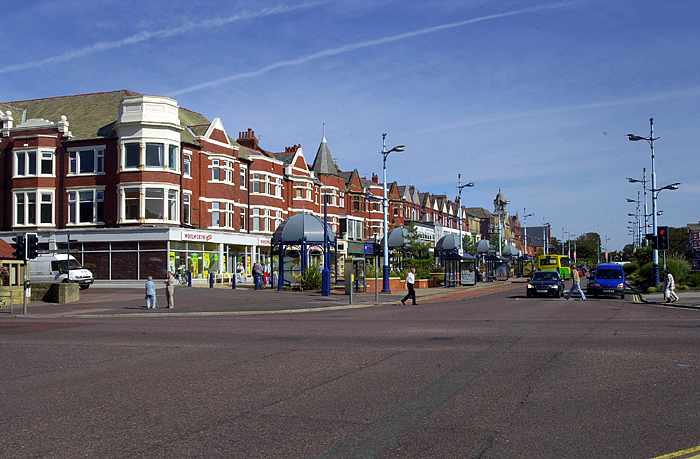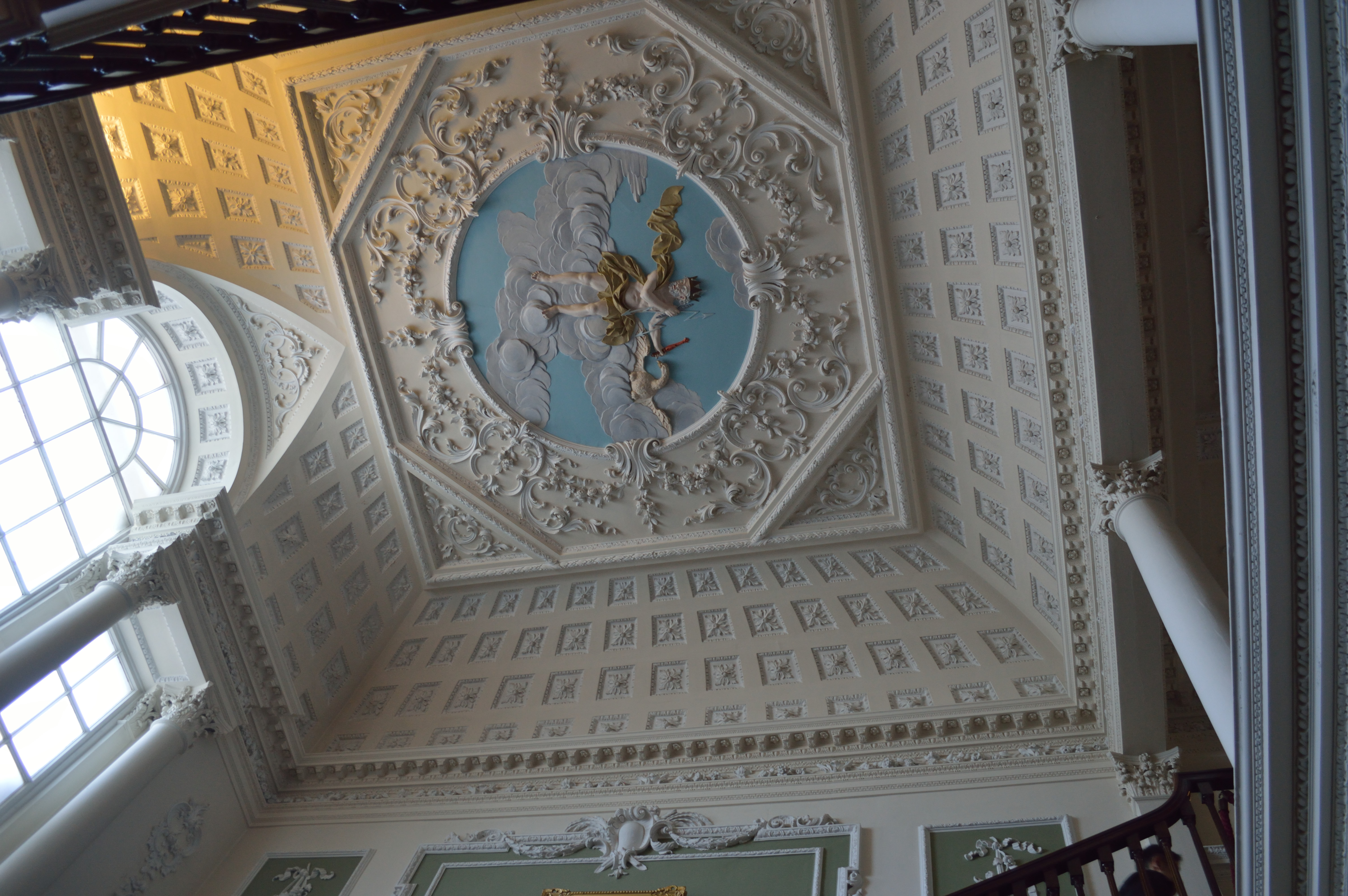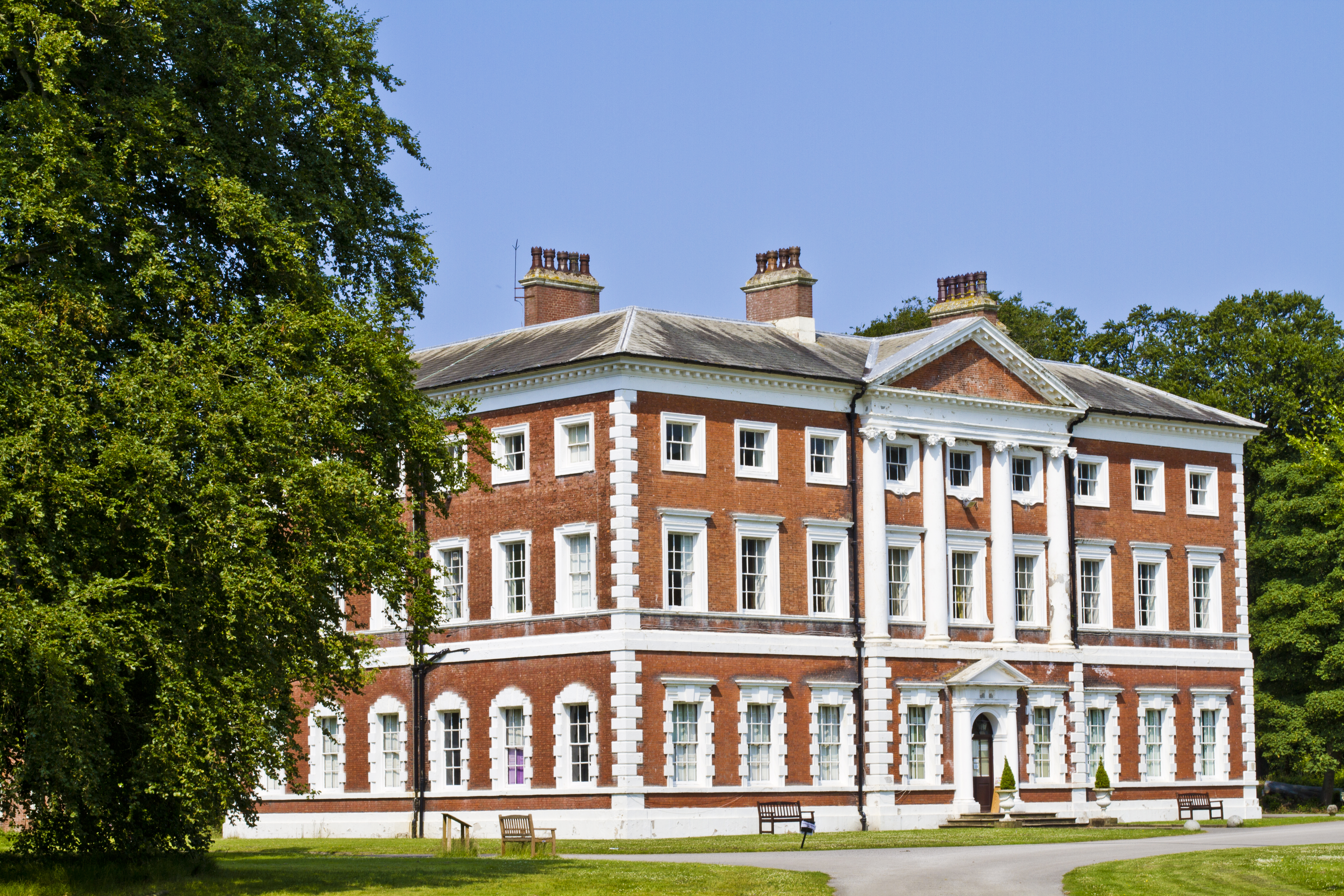|
Lytham St. Annes
Lytham St Annes () is a seaside town in the Borough of Fylde in Lancashire, England. It is on the Fylde coast, directly south of Blackpool on the Ribble Estuary. The population at the 2011 census was 42,954. The town is almost contiguous with Blackpool but is separated from it by Blackpool Airport. The town is made up of the four areas of Lytham, Ansdell, Fairhaven and St Annes-on-Sea. Lytham St Annes has four golf courses and links, the most notable being the Royal Lytham & St Annes Golf Club, which regularly hosts the Open Championship. Lytham St Annes is a reasonably affluent area with residents' earnings among the highest in the North of England. Towns and districts Lytham St Annes consists of four main areas: Lytham, Saint Anne's-on-the-Sea, Ansdell and Fairhaven. Lytham The name Lytham comes from the Old English ''hlithum,'' plural of ''hlith'' meaning (place at) the slopes'.'' The Green, a strip of grass running between the shore and the main coastal road, is a no ... [...More Info...] [...Related Items...] OR: [Wikipedia] [Google] [Baidu] |
Lytham Hall
Lytham Hall is an 18th-century Georgian country house in Lytham, Lancashire, from the centre of the town, in of wooded parkland. It is recorded in the National Heritage List for England as a designated Grade I listed building, the only one in the Borough of Fylde. History The manor of Lytham was recorded in the ''Domesday Book'' of 1086 as ''Lidun''. In the 12th century it was given to the Benedictine monks of Durham Priory for the foundation of a monastic cell—Lytham Priory. Following the Dissolution of the Monasteries in the 1530s, Lytham Priory came into the possession of Sir Richard Molyneux. In 1606 the land was acquired by local landowner Cuthbert Clifton, who built a house there. Cuthbert's descendant, Thomas Clifton, replaced that house with the current hall, which was built 1757–1764 to the design of John Carr of York. For the next two centuries the Clifton estate, at its largest, comprised . Ownership of the property descended to John Clifton (1764–1832 ... [...More Info...] [...Related Items...] OR: [Wikipedia] [Google] [Baidu] |
Lytham Railway Station
Lytham railway station serves the town of Lytham St Annes, Lancashire on the Blackpool South to Preston railway line. Services The conurbation of Lytham St Annes is served by three stations: Lytham, (adjacent to the Royal Lytham & St Annes Golf Club) and St Annes. Northern runs trains from here to Blackpool South and to Kirkham, and once an hour all week (including Sundays); these services are much less frequent than those to Blackpool North. Services are usually worked by Class 150 Diesel Multiple Units. History The road name Station Road attests to the fact that the original station was about 500 metres east of the present one; a fire station now stands on the spot. The present station in Ballam Road was opened in 1863 when the separate Blackpool and Lytham Railway Blackpool is a seaside resort in Lancashire, England. Located on the northwest coast of England, it is the main settlement within the borough also called Blackpool. The town is by the Irish Sea, ... [...More Info...] [...Related Items...] OR: [Wikipedia] [Google] [Baidu] |
Land Yacht
Land sailing, also known as sand yachting, land yachting or dirtboating, is the act of moving across land in a wheeled vehicle powered by wind through the use of a sail. The term comes from analogy with (water) sailing. Historically, land sailing was used as a mode of transportation or recreation. Since the 1950s, it has evolved primarily into a racing sport. Vehicles used in sailing are known as sail wagons, sand yachts, or land yachts. They typically have three (sometimes four) wheels and function much like a sailboat, except that they are operated from a sitting or lying position and steered by pedals or hand levers. Land sailing works best in windy flat areas, and races often happen on beaches, airfields, and dry lake beds in desert regions. Modern land sailors, generally known as "pilots", can go three to four times faster than the wind speed. A gust of wind is considered more beneficial in a land sailing race than a favorable windshift. A similar sport, known as ice yachti ... [...More Info...] [...Related Items...] OR: [Wikipedia] [Google] [Baidu] |
St Anne's Pier
St Anne's Pier is a Victorian era pleasure pier in the English seaside resort of St Anne's-on-the-Sea, Lancashire. It lies on the estuary of the River Ribble. The pier, designed by Alfred Dowson, was completed in 1885 and was one of the earliest public buildings in St Anne's, a 19th-century planned town. The pier was originally intended to be a sedate promenading venue for the resort's visitors, but attractions were later added. Changes made to the estuary channels to improve access to Preston Dock left the pier on dry land and ended its steamer services to Blackpool and Liverpool. A Tudor-style entrance was built in 1899. Early 20th-century additions included a Moorish-style pavilion in 1904 and the Floral Hall in 1910. The Moorish Pavilion was destroyed by fire in 1974, shortly after the town's centenary; the Floral Hall burned down in 1982. Originally long, the pier was reduced to by the demolition of the seaward end. English Heritage has designated the pier a Grade II ... [...More Info...] [...Related Items...] OR: [Wikipedia] [Google] [Baidu] |
Blue Plaque
A blue plaque is a permanent sign installed in a public place in the United Kingdom and elsewhere to commemorate a link between that location and a famous person, event, or former building on the site, serving as a historical marker. The term is used in the United Kingdom in two different senses. It may be used narrowly and specifically to refer to the "official" scheme administered by English Heritage, and currently restricted to sites within Greater London; or it may be used less formally to encompass a number of similar schemes administered by organisations throughout the UK. The plaques erected are made in a variety of designs, shapes, materials and colours: some are blue, others are not. However, the term "blue plaque" is often used informally to encompass all such schemes. The "official" scheme traces its origins to that launched in 1866 in London, on the initiative of the politician William Ewart, to mark the homes and workplaces of famous people. It has been administe ... [...More Info...] [...Related Items...] OR: [Wikipedia] [Google] [Baidu] |
ERNIE
Ernie is a masculine given name, frequently a short form (hypocorism) of Ernest, Ernald, Ernesto, or Verner. It may refer to: People * Ernie Accorsi (born 1941), American football executive * Ernie Adams (other) * Ernie Afaganis (born c. 1933), Canadian sports announcer * Ernie Althoff (born 1950), Australian musician and composer * Ernie Anastos (born 1943), American television journalist * Ernie Anderson (1923–1997), American radio and television announcer * Ernie Ashcroft (1925–1985), English rugby league footballer * Ernie Ball (1930–2004), American guitarist and businessman * Ernie Banks (1931–2015), American baseball player * Ernie Barbarash, American film producer * Ernie Barnes (1938–2009), American football player and painter * Ernie Blenkinsop (1902–1969), English footballer * Ernie Boch Jr. (born 1958), American billionaire businessman * Ernie Bond (other) * Ernie Bridge (1936–2013), Australian politician * Ernie Broglio (1935–2 ... [...More Info...] [...Related Items...] OR: [Wikipedia] [Google] [Baidu] |
Blackpool Tower
Blackpool Tower is a tourist attraction in Blackpool, Lancashire, England, which was opened to the public on 14 May 1894. When it opened, Blackpool Tower was the List of tallest buildings in the British Empire and the Commonwealth, tallest man made structure in the British Empire. Inspired by the Eiffel Tower in Paris, it is tall and is the 125th-tallest freestanding tower in the world. Blackpool Tower is also the common name for the Tower Buildings, an entertainment complex in a red-brick three-storey block that comprises the tower, Tower Circus, the Tower Ballroom, and roof gardens, which was designated a Listed building, Grade I listed building in 1973. Background The Blackpool Tower Company was founded by London-based Standard Contract & Debenture Corporation in 1890; it bought an aquarium on Central Promenade with the intention of building a replica Eiffel Tower on the site. John Bickerstaffe, a former mayor of Blackpool, was asked to become chairman of the new company, and ... [...More Info...] [...Related Items...] OR: [Wikipedia] [Google] [Baidu] |
Maxwell And Tuke
Maxwell and Tuke was an architectural practice in Northwest England, founded in 1857 by James Maxwell in Bury. In 1865 Maxwell was joined in the practice by Charles Tuke, who became a partner two years later. The practice moved its main office to Manchester in 1884. Frank, son of James Maxwell, joined the practice in the later 1880s and became a partner. The two senior partners both died in 1893, and Frank Maxwell continued the practice, maintaining its name as Maxwell and Tuke. In the early years the practice designed relatively small buildings in and around Bury. Their first major commission came in 1871 for Cambridge Hall, Southport. Later works included the Ulster Reform Club in Belfast, and extensive temporary structures to house the Royal Jubilee Exhibition in Manchester in 1887/1888. After this they had their most notable commission, the design of Blackpool Tower. Both senior partners died before this could be completed, and the work was continued by Frank Maxwell ... [...More Info...] [...Related Items...] OR: [Wikipedia] [Google] [Baidu] |
St Anne's On The Sea Land And Building Company
St. Anne's on the Sea Land and Building Company was formed in 1874 and played an integral part in the development of the new town of St.Anne's on the Sea from 1875. The company had its roots in the Rossendale area and the most significant investor was William John Porritt, a woollen manufacturer from Helmshore. His money contributed to the building of St Anne's and restored confidence in the project after some early problems. Early days of the company The Clifton Family of Lytham Hall, owners of the Manor of Lytham in Lancashire, guided by their land agent James Fair began planning for a new town in the area as early as the 1840s. During the 1850s they invested in the railway between Lytham and Blackpool which was opened in 1863. In the early 1870s a road was laid from what is now Fairhaven to the present St Anne's Square and a further road continued to the Parish Church of St Anne which was built in 1872/3 and funded by Lady Eleanor Cecily Clifton. The church gave the name t ... [...More Info...] [...Related Items...] OR: [Wikipedia] [Google] [Baidu] |
St Annes
Lytham St Annes () is a seaside town in the Borough of Fylde in Lancashire, England. It is on the Fylde coast, directly south of Blackpool on the Ribble Estuary. The population at the 2011 census was 42,954. The town is almost contiguous with Blackpool but is separated from it by Blackpool Airport. The town is made up of the four areas of Lytham, Ansdell, Fairhaven and St Annes-on-Sea. Lytham St Annes has four golf courses and links, the most notable being the Royal Lytham & St Annes Golf Club, which regularly hosts the Open Championship. Lytham St Annes is a reasonably affluent area with residents' earnings among the highest in the North of England. Towns and districts Lytham St Annes consists of four main areas: Lytham, Saint Anne's-on-the-Sea, Ansdell and Fairhaven. Lytham The name Lytham comes from the Old English ''hlithum,'' plural of ''hlith'' meaning (place at) the slopes'.'' The Green, a strip of grass running between the shore and the main coastal road, is a not ... [...More Info...] [...Related Items...] OR: [Wikipedia] [Google] [Baidu] |
Lancashire County Council
Lancashire County Council is the upper-tier local authority for the non-metropolitan county of Lancashire, England. It consists of 84 councillors. Since the 2017 election, the council has been under Conservative control. Prior to the 2009 Lancashire County Council election, the county had been under Labour control since 1989. The leader of the council is Conservative councillor Phillippa Williamson, appointed in May 2021, chairing a cabinet of up to eight councillors. The Chief Executive and Director of Resources is Angie Ridgwell who was appointed in January 2018. History The council was established in 1889 under the Local Government Act 1888, covering the administrative county. It was reconstituted under the Local Government Act 1972 with some significant changes to its territory. In 1998 Blackburn with Darwen and Blackpool were both made unitary authorities, making them independent from the county council. One Connect scandal In May 2011 the council's Conservative a ... [...More Info...] [...Related Items...] OR: [Wikipedia] [Google] [Baidu] |







